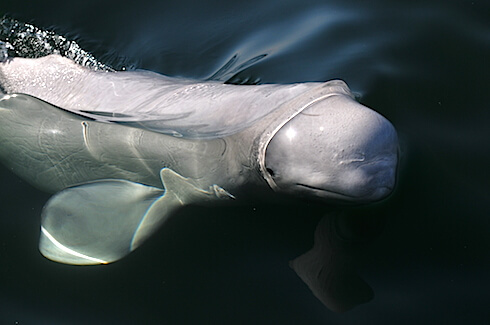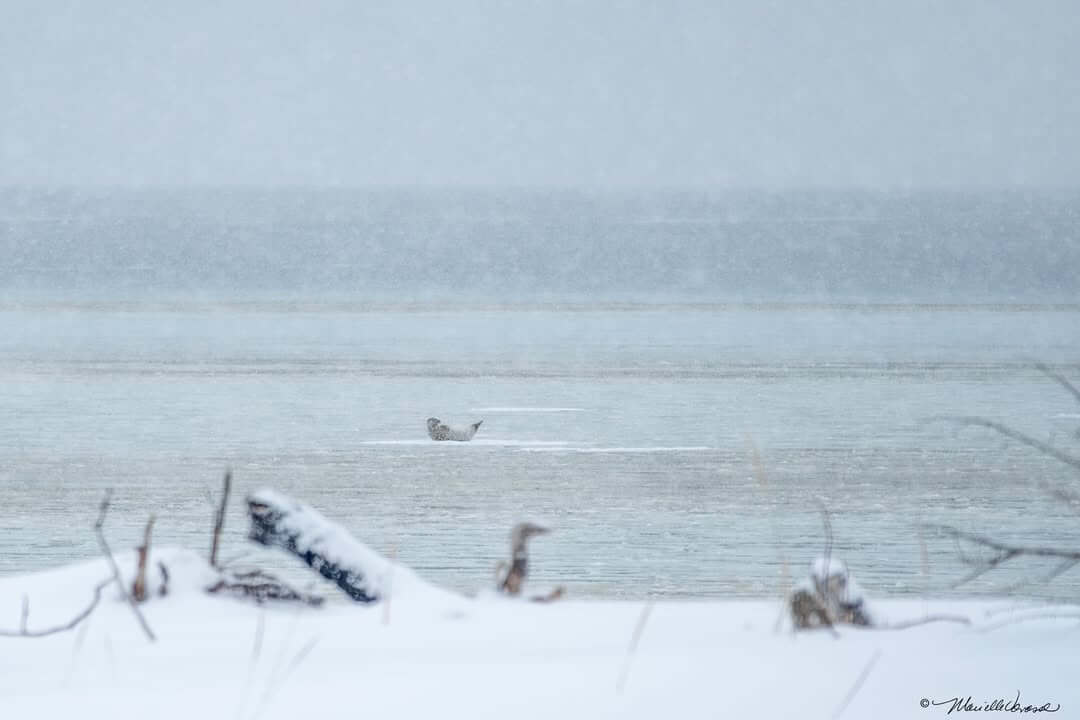Observations of small groups of belugas have been reported here and there since the beginning of March, but this week, more than fifty belugas were seen along the coast in the vicinity of Les Escoumins, in the St. Lawrence Estuary. In addition to being struck by the size of the group, our observer was delighted to hear the out-of-water vocalizations emitted by these whales!
Belugas have been nicknamed “sea canaries” since the time of the first explorers, precisely due to the wide range of sounds they make and which are audible to the human ear. Their repertoire includes clucks, clicks, grunts, groans, trills and whistles.. Some people also compare their sounds to rusty doors, bird songs and sometimes even meows!
Belugas have a highly varied vocal repertoire. The beluga is the most vocal of toothed whales and its repertoire is more diverse than that of dolphins. Beluga vocalizations vary as a function of its behaviour. The beluga spends part of its life near the pack ice where the movement of ice produces substantial background noise; therefore, the ability to emit a highly varied range of sounds is perhaps essential to “stay in touch” with other members of a group. Indeed, like other toothed whales, belugas use two main categories of sounds. The first category, which allows individuals to communicate with each other, consists of either whistles or pulse signals. Specific sounds known as “calls” are emitted in situations of disturbance to maintain the cohesion of the pod, and particularly the contact between mothers and their calves. The second category corresponds to clicks, which are used for echolocation. For navigating and finding prey, belugas possess a high performance echolocation system comparable to radar.

Throughout this concert at sea, dozens of gannets were flying over the St. Lawrence. A few representatives of this species were also seen in the Franquelin region, where our observer also reported her first whale of the year: a minke whale.





